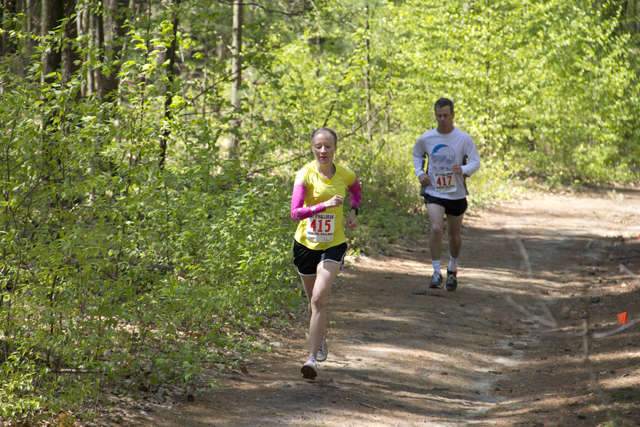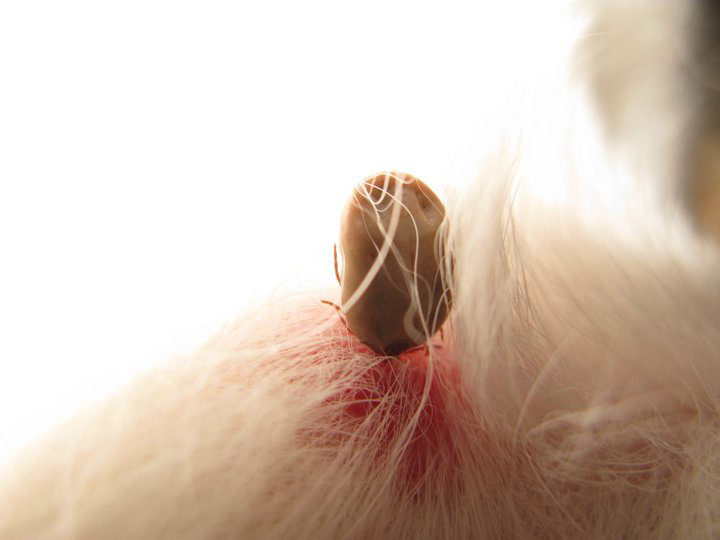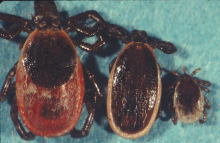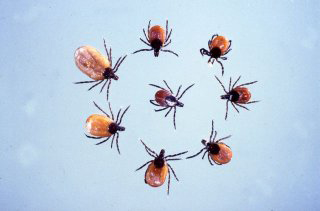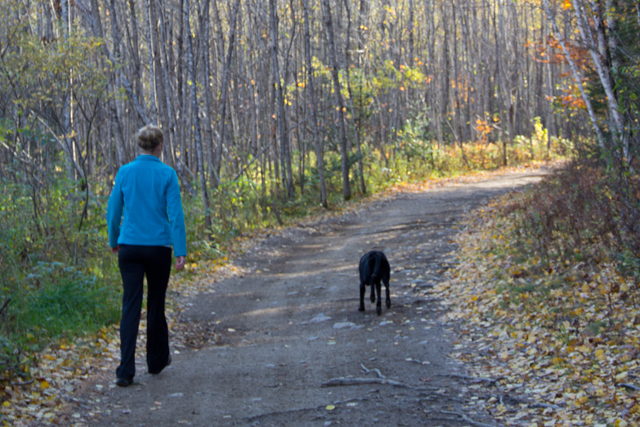All of us on the NH State Park Bloggers relay team live for being outside. One reason we love New Hampshire so much is because we have opportunities for outdoor activity beckoning us in every season. We actually go through nature withdrawals where we become cranky if work or other commitments keep us inside too much.
Those who love being outside on New Hampshire’s trails and in nature as much as we do understand how important it is to take steps to protect against a growing problem in New Hampshire – Lyme Disease. New Hampshire incidence of Lyme disease is one of the highest per capita in the United States. The map shown below from the Lyme Disease Association, Inc. shows the intensity of this growing problem.
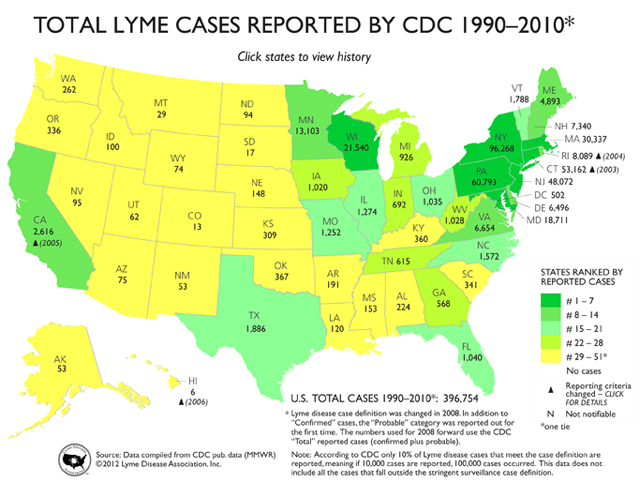
Additionally this map of New Hampshire from the Division of Public Health Services shows the estimated proportion of adult black legged ticks infected with Lyme disease (2007-2009). 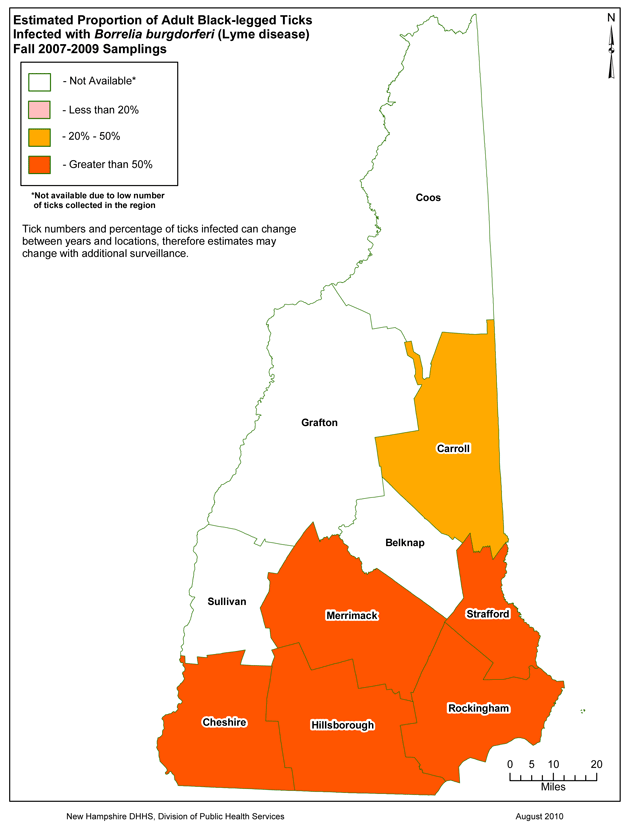
This year is expected to be a tough one in regards Lyme disease and tick populations and the bizarre weather is not the direct cause. Oddly enough, experts are blaming acorns! Last year was a great year for acorns which caused a boom in the mice population. These mice are a delicacy for tick larvae. The larvae that fed last fall are awakening now as tiny nymphs (which are what they actually are called) and will latch on to whatever they can. The bigger problem is that the mouse population is said to have dropped which means that there are a lot more hungry ticks and nymphs out there looking for passersby. Check out this full article on this subject from TimesUnion.com: Nature, the trickster: A tale of mice, acorns and a tick season from hell.
Here are some steps that you can follow to protect yourself from ticks this summer:
- Wear lighter color clothing so that you can see the ticks easier
- Tuck your pants into your socks to keep them on the outside of your clothing
- Use insect repellent that protects against ticks. 20% or more DEET is effective but use cautiously and be careful of using on children or near pets
- Do “tick checks” on yourself, your family, and your pets immediately after an outdoor activity
- Pull long hair up and tuck into a hat
There are education and resources available to learn more about this danger and there is a growing amount of support for those whose lives have been changed by Lyme Disease. A new resource is Lyme411 based in Laconia that was established in 2010. They hold monthly support meetings and bring in guest speakers for scheduled events. They also work hard to raise funds for research. Visit www.lyme411.org for more information.
The NH State Park Bloggers team is running for Lyme Disease awareness and encourages you to do what you can to help support and improve treatment of Lyme and other tick borne illnesses. In addition, we urge you to be extra diligent with tick checks and to safely enjoy New Hampshire’s beautiful outdoors.
Additional Resources:
Lyme Disease Information from NH Division of Health and Human Services
What Every Primary Care Physician Should Know About Lyme Disease (pdf)
Ticks Carrying Lyme NH Map (pdf)
Biology and Management of Ticks in New Hampshire (pdf)
Tick-borne Disease in NH Update (2009) (pdf)

